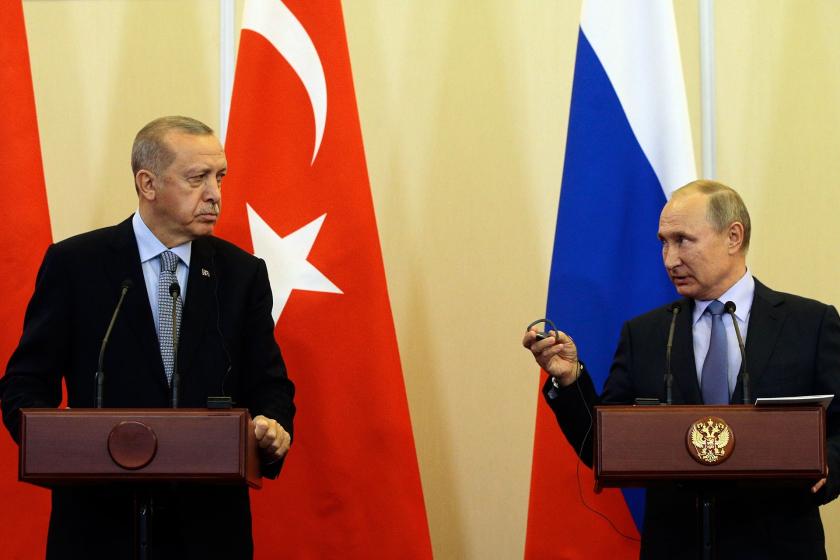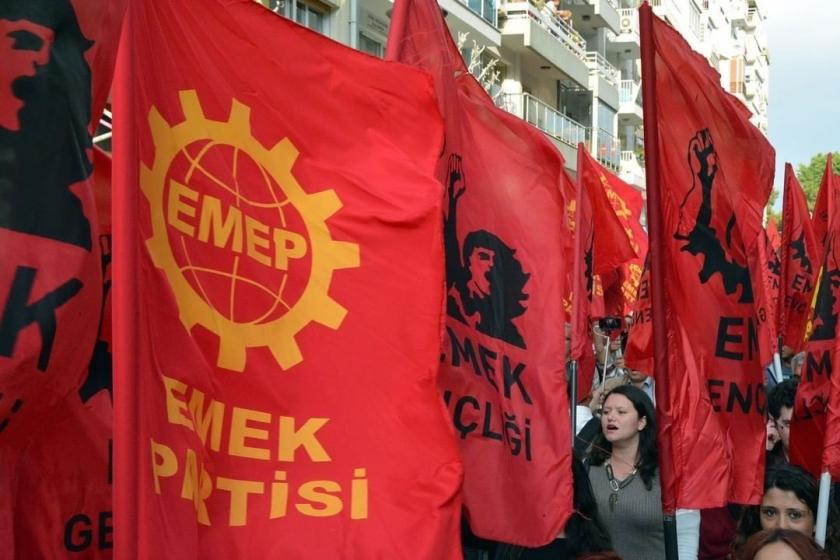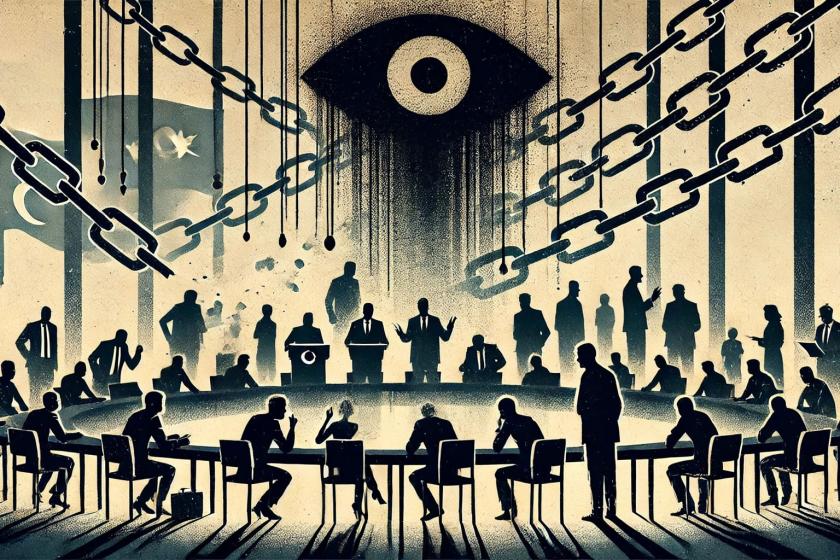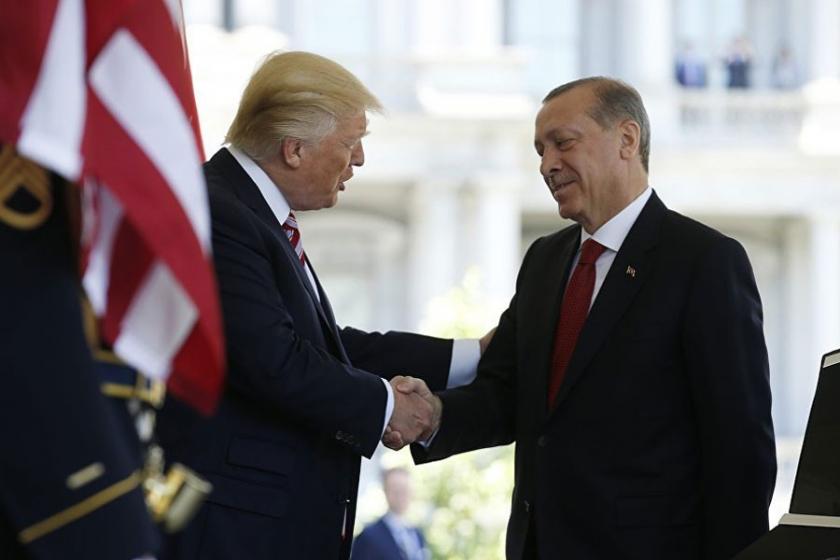Şerif KARATAŞ
İstanbul
Reverberations continue from the ten-point “agreement” reached between Erdoğan and Russian Head of State Putin in Sochi. Associate Professor Dr. Burak Bilgehan Özpek of the Political Sciences and International Relations Department of the Union of Turkish Chambers and Exchanges University of Economics and Technology, whom I spoke to about the agreement, is of the view that the AKP has been unable to meet its anticipations in either domestic politics or foreign politics.
Saying that, at the stage reached, developments in Syria will inevitably change the approach to the Kurdish problem, too, Özpek pointed out that nationalism and militarism had equated to loss rather than gain. Özpek said, “The AKP and nationalist circles’ politics configured around antipathy to the Kurds and the HDP has become a liability. As such, there needs to be a release of tension, with the AKP or without the AKP.”
“TURKEY WAS OBLIGED TO NEGOTIATE WITH RUSSIA”
According to Özpek, the agreements enacted between the SDF and Damascus, the US and Turkey and, most recently, Russia and Turkey “were triggered by Turkey’s operation.” Saying these agreements came onto the agenda as events unfolded and also shaped the fate of the operation, Özpek said, “That is, these agreements came about as a consequence of the operation but were not the aim of the operation. Turkey launching the operation unilaterally led to a rapprochement in relations between Assad and the YPG. As to the agreement made between Turkey and the US, this came into play to assuage international antipathy towards the operation and anti-Trump reactions in American domestic politics. These two agreements in turn entailed Turkey negotiating with Russia; they made this mandatory. Hence, none of these agreements were on the horizon when the operation started.”
“THE OPERATION HAS ENABLED RUSSIA TO MAKE IMPORTANT GAINS”
Also assessing the ten points on which agreement was reached, Özpek is of the view that Russia is the country that has emerged victorious from the process. According to Özpek, the very reason that Russia made important gains in its Syria policies was “developments triggered thanks to Turkey’s operation.” By way of continuation, Özpek said, “The stress on the Adana agreement is most significant. This situation has both made it necessary for Ankara to negotiate with Damascus and significantly reduced the scale of potential military operations it can conduct on Syrian territory. In conjunction with this, the fight against ‘terrorist organizations’ is quite important because, from Russia’s point of view, the PKK is not a terrorist organization but the FSA is a terrorist organization. The teleconference held between Russian Defence Minister Shoygu and SDF Commander Mazloum Abdi was leaked to the press. This state of affairs shows that Russia has reached agreement with Turkey over combatting terrorism but it is hard for agreement to be reached over what constitutes a terrorist organization. We end up with a Turkey that is confined to the region between Serakaniye and Tel Abyad. This state of affairs shows that Turkey has fallen far, far short of the political and military objectives it had set at the start of the operation.”
NEW PERIOD FOR THE KURDS
Assessing the agreement from the viewpoint of the SDF and Kurds, Özpek commented, “A new era is now starting for the Kurds. They have been ushered into a kind of process in which they will carry on in harmony with central governments and without experiencing conflict with the nation states under which they live. In such terms, something similar to the agreement between Assad and the SDF may come into being in Iraq and Turkey. This state of affairs will at the same time bring in its wake a softening of central governments’ attitudes and their becoming more generous towards the Kurds. That is, I expect a process of softening and a return to politics. The period in which objectives are achieved through military methods and awaiting the involvement of forces from outside the region has entered the annuls as an unrealistic policy following the most recent operation.”
“THE OPERATION HAS SEEN ASSAD’S AREA OF SOVEREIGNTY EXPANDED”
With reference to the repercussions in the region of the agreement, not least Syria, Burak Bilgehan Özpek remarked, “We can say that Assad is now well and truly sitting pretty. The eight-year civil war has exhausted many of Syria’s resources, chiefly its human resources. Thanks to Ankara’s operation, relations have been established between Damascus and the SDF and Assad’s area of sovereignty has expanded. In conjunction with this, Assad has been presented with fresh human resources ready to wage war. I think the YPG forces will act in combination with Damascus and may take up active duties in the regions of Idlib and, in the upcoming period, Afrin. It must not be overlooked that Assad has come to the fore as an element of stability in the region as the upshot of Ankara’s operation decision. This would have been inconceivable three or four years ago.”
“US SATISFIED WITH AGREEMENT”
Saying the US was satisfied with the agreement, Burak Bilgehan Özpek noted, “Because Trump and the anti-interventionist school was greatly troubled by the bottomless and unending interventions being made in the Middle East. The thought that regional actors should solve the problems themselves finds considerable support in the US. At this stage, Trump has managed to stop Turkey and exit Syria without suffering loss. Moreover, it has successfully saddled Russia with the duty to deal with it as the cause of the problems in the Middle East. It is now time to stop conjecturing how the US will react based on knee-jerk geopolitical interpretations.”
DOMESTIC POLITICS: AKP IN A PLACE IT HAD NOT AT ALL ANTICIPATED
Saying the operation had been a prize opportunity for the AKP to exert indirect pressure on its rivals in domestic policies, Özpek commented, “It was going to be possible to cow the opposition and potential new parties and set the agenda with national security and nationalist rhetoric. The opposition parties in any case were incapable of adopting a consistent political position as of the first day. As such, everything proceeded as Erdoğan wished in the first days. However, it was not long before the international reaction and alliances triggered in the region left the operation an orphan, if you will. That is, the operation has run aground. As such, the AKP has ended up in a place it had not at all anticipated.”
They will try to make up for this slip-up by occupying the television screens and newspaper columns with crony figures steeped in eloquence who engage in heroism. However, these figures, far from convincing the people, will probably bring the veracity of the AKP’s rhetoric into question.”
“NATIONALISM HAS SHOWN IT WILL EQUATE TO LOSS RATHER THAN GAIN”
Stating that developments in Syria will inevitably change the approach to the Kurdish problem, Burak Bilgehan Özpek commented as follows: “If the AKP cannot do this, other political actors for sure will. There are quite a few figures just now who wish to erect their personal careers on populist nationalism. These people were greatly counting on the Syrian operation being successful and politics fostered by security-focused discourse in which it succeeded would have given them quite a fillip. However, the point reached has shown that nationalism and militarism will equate to loss rather than gain. The politics configured around antipathy to the Kurds and the HDP of the AKP and nationalist circles, who conduct politics with the Kurdish problem placed at its centre, has become a liability and politicians who invest in it will not be as popular as they were before. As such, there needs to be a release of tension, with the AKP or without the AKP.”
(Translated by Tim DRAYTON)





 Ceren Sözeri
Ceren Sözeri
 Yusuf Karadaş
Yusuf Karadaş
 Aras Coşkuntuncel
Aras Coşkuntuncel